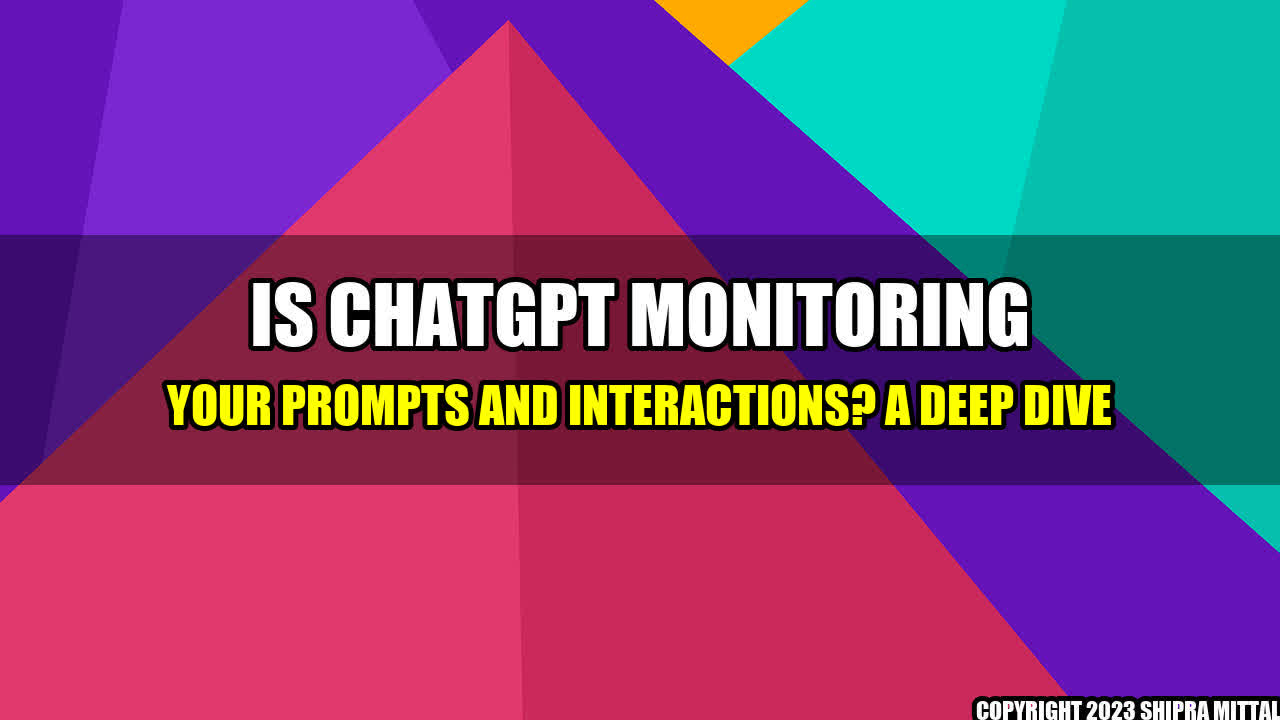Is ChatGPT Monitoring Your Prompts and Interactions? A Deep Dive

Imagine you�??re chatting with a bot to book your next flight, and all of a sudden, the bot responds with a deal that matches what you were thinking in your head. You didn�??t type those exact words, nor did you mention them in any of your previous conversations with the bot.
This scenario raises several red flags about the degree to which ChatGPT, an AI chatbot company, is monitoring our interactions, thoughts, and prompts. Experts suggest that ChatGPT may not only analyze your responses to its prompts but also use advanced NLP techniques to capture your intent and mood.
However, ChatGPT isn't the only one. There are several prominent chatbot companies that are pushing the envelope on data privacy, and here are some real-world examples to back that up:
- x.ai, a virtual scheduling assistant, keeps a log of every meeting it arranges, along with its users' email and contact lists.
- Clinc, an AI assistant for banks and financial companies, aims to create a full behavioral and financial profile of its clients, including their spending habits and personal information.
- AlphaChat, an AI chatbot for customer service, utilizes a database of pre-recorded human replies and conversations to simulate human interaction.
While these chatbot providers have Privacy Policies in place to ensure that they aren�??t capturing or sharing users' sensitive information, these policies can still be confusing or misleading for those without a legal background. It's also worth considering that adhering to data privacy policies and implementing them in practice are two different things.
Conclusion
It�??s essential to understand that just as with any other AI, chatbots can only provide the level of privacy and security they were designed for. Our primary responsibility as users is to educate ourselves about the intentions and risks of these chatbots and the data they capture. Here are three critical points to consider:
- As AI chatbots become more popular, it�??s essential to raise awareness among ordinary users about data privacy and minimize the risks of exploitation.
- Advancements in NLP and other AI techniques are making chatbots smart enough to mimic or simulate human behavior, making it even harder to differentiate between AI and human input.
- Finally, the burden of proof is on the chatbot providers to demonstrate that they are genuinely committed to safeguarding their users' data, and not all providers might be up to the challenge.
References:
Hashtags: #ChatGPT #AIChatbots #DataPrivacy #NLP #ArtificialIntelligence
Category: AI & Machine Learning
Author: Akash Mittal
Akash Mittal Tech Article
Share on Twitter Share on LinkedIn